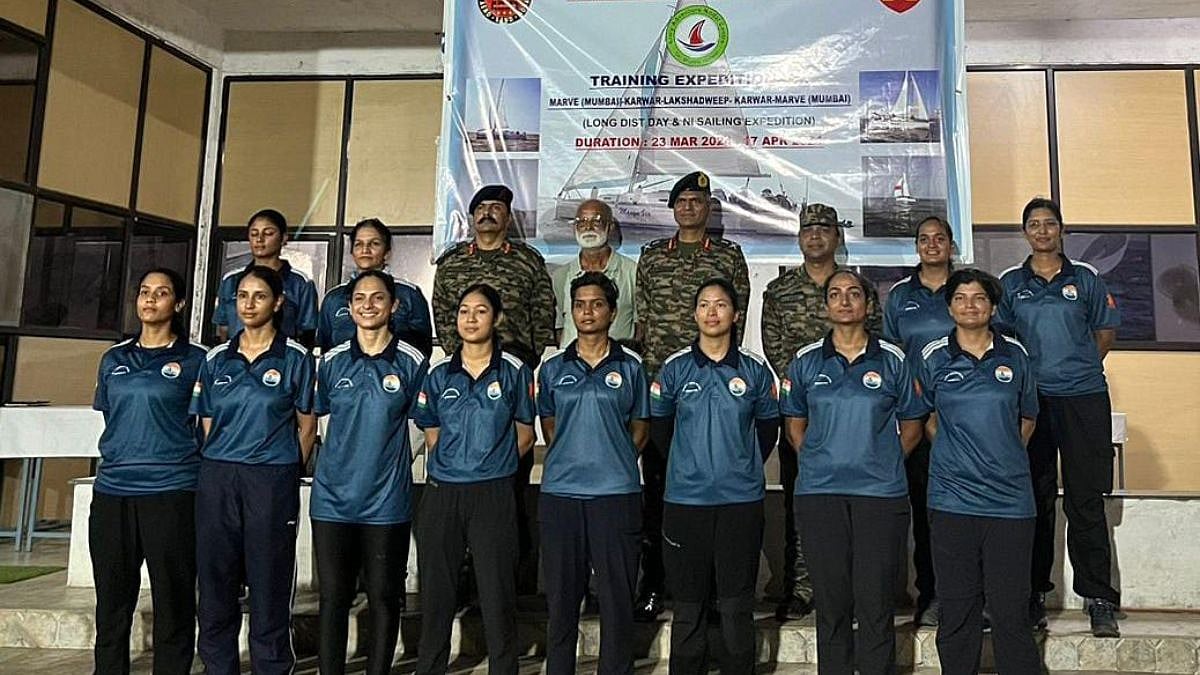Narendra Modi, true to his penchant for setting new records and pulling rabbits out of his Rajasthani ‘safa’, became India’s first prime minister since Indira Gandhi to carry an election entirely on his own and win a second consecutive majority.
No one saw it coming, except for one oddball among pollsters, who predicted 350 seats for the NDA and 95 for the UPA. And of course, Prime Minister Narendra Modi himself.
Modi’s confidence was manifest even before the first vote was polled. As early as April, he had discussed a “first 100 days” plan with advisers in and outside the government and gave the go-ahead for attending an international conference after the elections.
Whatever happened to anti-incumbency? Was it blasted away by the Balakot bomb? The agrarian crisis, unemployment, demonetisation and GST blues should have shown up in the poll-ing figures. Perhaps these grievances were offset by Ujjwala, awas yojana, swacchh bharat and other welfare schemes.
Or it might have been the fact that the Opposition played its cards poorly. The much-touted all-India mahagathbandhan did not see light of day and the Congress ran an appallingly poor campaign around “chowkidar chor hai”, thereby setting up the backs of blue collar workers everywhere.
The only intelligent move it made was to field Rahul Gandhi from Wayanad in Kerala, to ensure that he had a seat in the Lok Sabha, indubitably anticipating the debacle in Amethi. All of this put together does not explain how Modi pulled off his spectacular win, but the overtly presidential nature of his campaign does.
It was built around Modi rather than the BJP. Every vote for the BJP was clearly a vote for Modi. To the momentum of hardcore BJP supporters was added that of old and new Modibhakts, doubling the party’s impetus. The direct connect between Modi and the voter is easy to miss, because it is not mediated by any organisational structure, be it party or government.
It is independent of cause-and-effect and, thus, immune to the seduction of promises such as Rs 72,000 per annum to the poor, farm loan waiver, jobs and so on. Journos and pollsters, a BJP general secretary predicted well before the results came in, would make the mistake of putting on the wrong set of spectacles.
“Don’t look at the arithmetic, look at the chemistry,” he said. Sure enough, Modi’s chemistry with the common man appears to have bridged the caste and class divide. ‘Shock and woe’ best describes the impact of the verdict on the Congress and regional parties.
The seemingly impregnable BSP-SP alliance in Uttar Pradesh, the NCP-Congress alliance in Maharashtra and the RJD-Congress alliance in Bihar barely made headway in their respective states, regardless of arithmetic. The SP and BSP technically had a head start with a 50 per cent vote share, but could not transfer votes to each other and lost their share to the BJP.
The BJP breached Mamata Banerjee’s bastion in West Bengal and, to a lesser extent, Naveen Patnaik’s in Odisha, just as BJP president Amit Shah had promised. The man behind NDA’s Mission 350 had sworn to conquer new territories in the East and did so. His strategy of targeting 120 borderline seats and ‘converting’ them into goals paid off.
Having entered the Lok Sabha with a thumping victory in Gandhinagar, he is likely to join the Union Cabinet in one of the four key ministries. BJP general secretary Ram Madhav, having pulled off a big win in the North-East, gets a share of credit as well. The geopolitical, cultural and economic impact of the election will be felt in the years to come.
There are difficult times ahead for India in the context of geostrategic relations, the crisis in agriculture, rising prices of oil and a downturn in the global economy. Modi is aware of the challenges and now that he has won a clear mandate, he has a free hand to address all the issues.
In the honeymoon period of the new government, NDA III, sweeping policy decisions on a new round of economic reforms are likely, to power doubledigit growth. A severely weakened Opposition can only be a silent spectator. For the RSS, NDA II was a conducive government and the same is likely to be the case with NDA III.
Its agenda of decolonising the intellectual space in the country by liberating it from what it sees as the Leftist and ‘Lutyen’s Delhi’ mindset can now be carried forward. Modi had indicated that he would defeat the political narrative of the ‘Khan Market club’, which did not allow the right wing any space in the public discourse.
This is an important part of the RSS agenda. The only consolation for the Congress is in Kerala and Punjab, where it won spectacularly. Captain Amarinder Singh delivered in Punjab with aplomb, but the chief ministers of Rajasthan, Chhattisgarh and Madhya Pradesh, not to mention JD(S) partner H D Kumaraswamy, performed miserably.
Already, the CMs of Karnataka and MP are working on their survival strategy. Perhaps Rahul Gandhi should do so as well. Legend has it that his great grandfather once threatened the Jan Sangh founder: “I will crush you”, to which Shyama Prasad Mookerji retorted: “I will crush this crushing mentality”. The Congress’ hopes of a comeback have certainly been crushed, at least in the near future.






